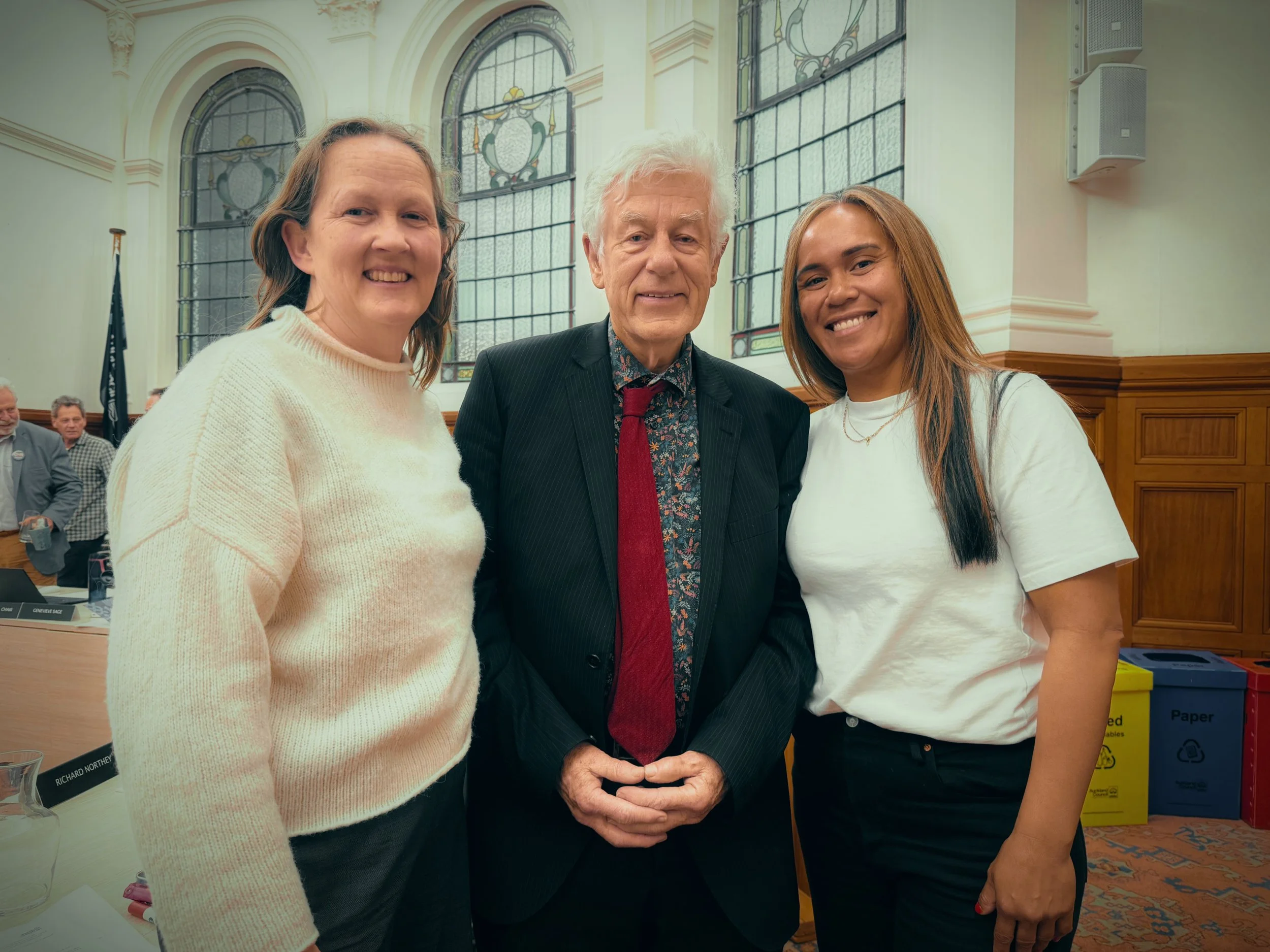E Kore Te Reo e Mimiti: Keeping Our Voice Alive in Council Chambers
E Kore Te Reo e Mimiti: Keeping Our Voice Alive in Council Chambers
By Waitematā Local Board member Anahera Rawiri
Māori Language Week is about more than words. It is about visibility, presence, and ensuring that Māori ways of being are seen, heard, and valued in every space—including local government, where decisions that shape our lives are made.
Yesterday marked the end of my first term on the Waitematā Local Board. Yes, I’ve put my name forward for re-election, but yesterday was our last meeting of this term. To be honest—it was a relief to reach the end of what felt like the longest three years of my life.
Local government was never on my radar. Like many, I didn’t grow up understanding what it was or how it worked. What I did know, though, was this: on land gifted by our tūpuna, there was no Ngāti Whātua voice at the table. No perspective. No reo. That needed to change.
I wasn’t driven by the thought of winning. My motivation was to be an example and show our people that sometimes you have to step into spaces that feel foreign, uncomfortable, even hostile. Because your presence might make it easier for the next ones to step in one day too.
And those spaces are uncomfortable. They are draining, political, rigid—at times, nasty. They are so far from the tikanga and kawa I know. Where I come from, kōrero is lifted by waiata, affirmed by whanaungatanga. At the Council table, voices are clipped by rules and procedures. Where I come from, decisions are collective. In this environment, in my experience, they are positional and political.
I have sat alongside members who refused to acknowledge karakia at our meetings, who wanted to strip away ancestral Māori names for places and revert only to colonial names. The argument? “That’s what it’s always been, it doesn’t need to change, or people will get lost.”
That dissonance is exhausting. It is also lonely. Over the past three years, around 200 people have presented to us—only about five were Māori or Pacific. Standing there is nerve-wracking. The formality, the rules, the stares. For many of our people, these spaces don’t feel like they are for us. And yet, they make decisions about us every day. That is the sad reality of a system that is meant to serve all of us.
So why go again you say? Because of purpose. Because of whakapapa. Because it matters that a Māori voice is in the room, even if it’s the only one. It matters that te reo Māori is spoken and heard in those minutes, even if just for a moment. It matters that when my mokopuna look back, they see their tupuna stepping into these spaces and know they can do the same.
At our final meeting, during acknowledgements, it felt right to close with these words—recorded in the week of the Tuku Whenua, so that one day, ngā uri o Tuperiri o Te Kawau, can read them:
"On the 18th September 2025 marks 185 years since the allocation of 3000 acres from Apihai Te Kawau of Ngāti Whātua to Governor Hobson for the establishment of Tāmaki, Auckland City.
I would like to acknowledge the Tuku Whenua by Apihai of Ngāti Whātua and their generosity.
E kore te reo o te ahi kā o tēnei whenua e mimiti haere. As we mark 185 years of the Tuku Whenua and the closing of the term for this Local Board, may the voice of my people never be forgotten by these walls, the public, the community and any future Board that serves these lands. Kaunihera atu, Kaunihera mai, kei konei tonu te ahi kā ake ake ake. Councils come and go, Ngāti Whātua will be here forever."
For me, Te Wiki o te Reo Māori is not just about celebrating our language. It is about making sure our reo, our values, our people and our presence are seen and heard in the places where decisions are made. Councils will come and go. Systems will change. But our reo, our people, our whakapapa and our whenua will remain.
Step into these spaces. They may not feel like they were built for us—but we are here, and we always will be.

